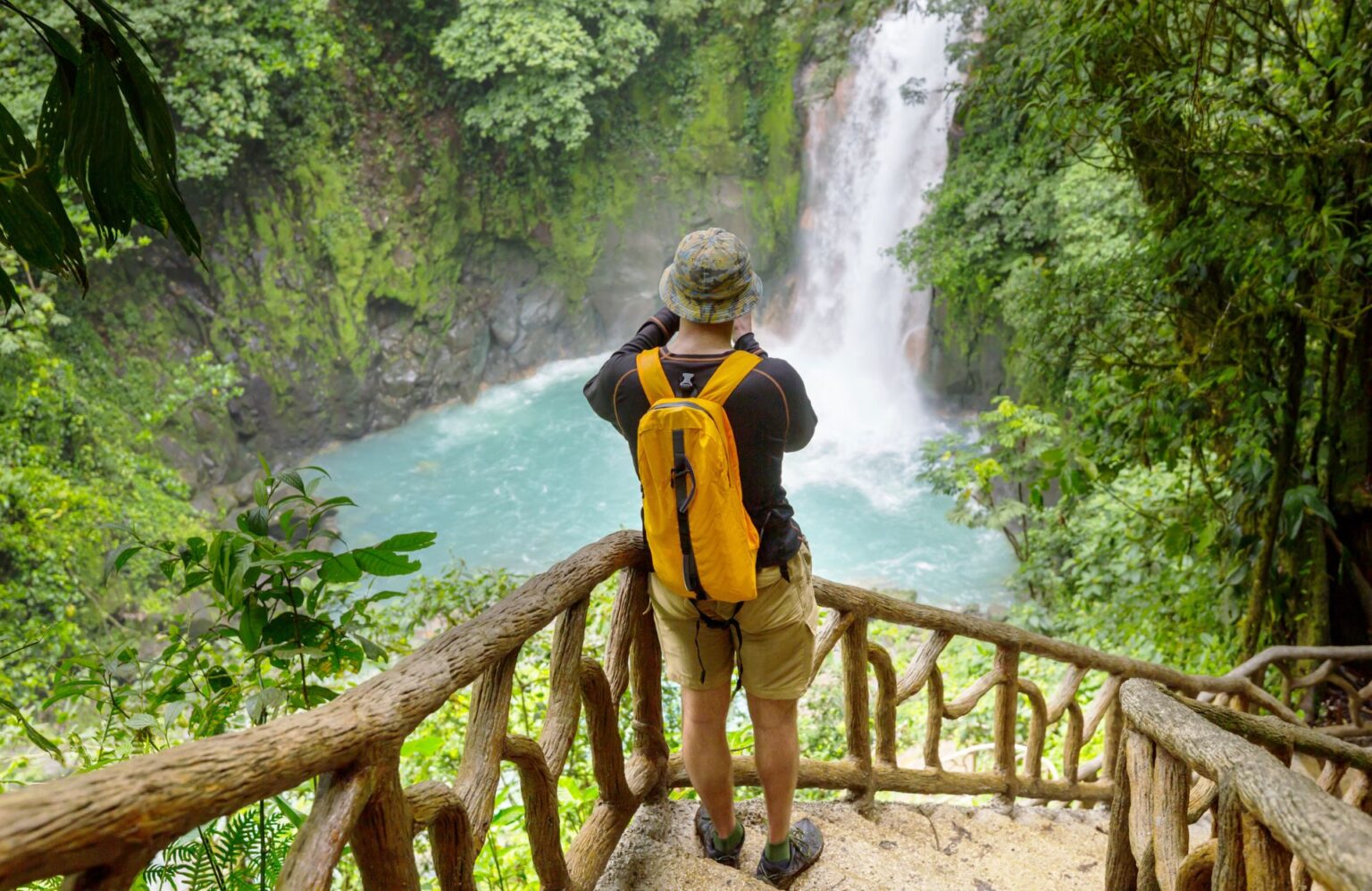Introduction
Costa Rica, a tropical paradise nestled in Central America, beckons travelers with its lush rainforests, pristine beaches, and diverse ecosystems. As a traveler considering a trip to this enchanting destination, you may be wondering about safety concerns. In this article, we’ll delve into the secrets of Costa Rica and explore whether it’s a safe place to visit.
Natural Wonders and Breathtaking Landscapes:
Costa Rica is renowned for its natural beauty, boasting a myriad of ecosystems ranging from rainforests and cloud forests to volcanoes and coastlines. While exploring these natural wonders, it’s essential to prioritize safety measures such as guided tours, respecting wildlife, and staying on designated paths. Costa Rica’s commitment to ecotourism ensures that its breathtaking landscapes remain protected and accessible to visitors in a responsible manner.
Wildlife Encounters:
One of the secrets to Costa Rica’s allure is its rich biodiversity. From howler monkeys to colorful toucans, wildlife enthusiasts can revel in the chance to encounter unique species. While the vast majority of wildlife encounters are safe and enjoyable, it’s crucial to exercise caution and adhere to guidelines provided by experienced guides. Maintaining a respectful distance and avoiding feeding or provoking animals is key to ensuring a safe and memorable experience.
READ ALSO: Backpacking Costa Rica: Ultimate Guide to Costa Rica Travel
Adventure Activities:
Costa Rica is a haven for thrill-seekers, offering a plethora of adventure activities such as zip-lining, white-water rafting, and surfing. Engaging in these activities can be an exhilarating way to unlock the secrets of the country, but safety precautions should not be overlooked. Choose reputable operators, adhere to safety instructions, and use proper equipment to minimize risks and maximize enjoyment.
Local Culture and Communities:
Exploring Costa Rica goes beyond its natural wonders; it involves immersing yourself in the local culture and engaging with its warm and friendly communities. The country has a reputation for its hospitality, but it’s essential to exercise the same caution you would in any unfamiliar destination. Stay informed about local customs, be respectful, and remain vigilant in crowded areas to ensure a safe and positive interaction with the local community.
Transportation and Infrastructure:
Costa Rica has a well-established tourism infrastructure, including reliable transportation options. While roads may vary in quality, especially in rural areas, the country has made significant improvements in accessibility. Exercise caution when driving and consider hiring reputable transportation services for longer journeys to ensure a safe and comfortable travel experience.
Health and Safety:
Before embarking on your journey, it’s advisable to check travel advisories and ensure that routine vaccinations are up-to-date. Costa Rica has a robust healthcare system, but travel insurance that covers medical emergencies is a prudent investment. Taking basic health precautions, such as using insect repellent in areas prone to mosquitoes, can further enhance your safety during your travels.
Unlocking the secrets of Costa Rica involves immersing yourself in its natural wonders, engaging with its vibrant culture, and embarking on thrilling adventures. With a commitment to responsible tourism and a focus on safety, Costa Rica welcomes travelers to explore its hidden treasures. By staying informed, exercising caution, and embracing the country’s warm hospitality, you can unlock the secrets of Costa Rica with confidence, knowing that this tropical paradise is indeed a safe and enchanting destination.
Frequently Asked Questions
The following are some frequently asked questions (FAQs) related to traveling to Costa Rica:
1. Is Costa Rica safe for tourists?
Generally, Costa Rica is considered safe for tourists. However, it’s essential to practice common-sense safety precautions, such as staying in well-traveled areas, using reputable transportation services, and being aware of your surroundings.
2. What is the best time to visit Costa Rica?
The dry season, from December to April, is considered the best time to visit Costa Rica. This period offers sunny weather and is ideal for outdoor activities. However, the green season (rainy season) from May to November also has its charm, with lush landscapes and fewer crowds.
3. Do I need a visa to visit Costa Rica?
Most visitors to Costa Rica do not need a visa for stays less than 90 days. However, you must have a valid passport and proof of departure, such as a return ticket.
4. Are there any health precautions I should take?
It’s recommended to check with your healthcare provider for any necessary vaccinations before traveling to Costa Rica. Additionally, consider purchasing travel insurance that covers medical emergencies.
5. How is the transportation in Costa Rica?
Costa Rica has a well-developed transportation infrastructure, including buses, shuttles, and rental cars. Domestic flights are also available for reaching more remote areas. Roads can vary in quality, so it’s advisable to plan transportation in advance.
6. Are there any safety concerns with wildlife?
While Costa Rica is rich in biodiversity, encounters with wildlife are generally safe. However, it’s important to follow guidelines, maintain a respectful distance, and avoid feeding or provoking animals.
7. What adventure activities are popular in Costa Rica?
Costa Rica offers a range of adventure activities, including zip-lining, white-water rafting, surfing, and hiking. It’s essential to choose reputable operators, follow safety instructions, and use proper equipment for these activities.
8. Can I drink tap water in Costa Rica?
While tap water in Costa Rica is generally safe in urban areas, it’s recommended to drink bottled or purified water, especially in more remote locations. It’s always a good idea to stay hydrated, so ensure you have access to clean water during your travels.
9. How is the local cuisine in Costa Rica?
Costa Rican cuisine is diverse and flavorful, featuring staples such as rice and beans, plantains, and fresh tropical fruits. It’s safe to enjoy local dishes from reputable establishments. However, travelers with dietary restrictions should communicate their needs to ensure a positive dining experience.
10. What cultural etiquette should I be aware of?
– Costa Ricans are known for their friendliness. It’s customary to greet people with a “Pura Vida” (pure life) and to be polite and respectful. Dress modestly in religious or rural areas, and it’s customary to tip around 10% in restaurants where service charge is not included.
Conclusion
In conclusion, unlocking the secrets of Costa Rica is a journey filled with natural wonders, cultural richness, and thrilling adventures. Traveling to this tropical paradise is generally considered safe for tourists, with the country’s commitment to responsible tourism and its warm hospitality. By practicing common-sense safety precautions, respecting wildlife, and immersing yourself in the local culture, you can embark on a memorable and secure exploration of Costa Rica.
Whether you choose to visit during the dry season for sun-soaked adventures or the green season to experience the lush landscapes, Costa Rica offers a diverse range of experiences. From the vibrant flora and fauna of its rainforests to the adrenaline-pumping activities like zip-lining and white-water rafting, the country caters to a variety of interests.
It’s crucial to stay informed about travel advisories, take health precautions, and plan transportation in advance. Costa Rica’s well-developed tourism infrastructure, reliable transportation options, and commitment to sustainability contribute to a positive and safe travel experience.
In the spirit of “Pura Vida,” the local expression encapsulating the pure and positive way of life, Costa Rica invites travelers to unlock its secrets with open hearts and a sense of adventure. So, pack your bags, embrace the wonders of Costa Rica, and create memories that will last a lifetime.
In another related article, Top 5 Cities to Explore in Central America | Guatemala, Costa Rica & More






